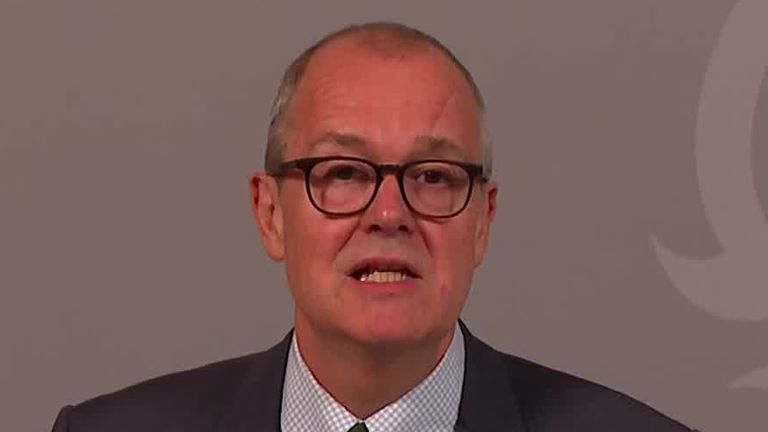In the race for a COVID vaccine it pays to keep your options open.
There is no way you can design a jab on paper and guarantee that it will work.
In fact, 90% of experimental vaccines fail to make it to the clinic.
Live updates on coronavirus from UK and around the world
So it’s welcome news that a second vaccine is to start late-stage clinical trials in the UK, joining the prototype from Oxford University and AstraZeneca.
The Novavax candidate has produced promising results in early stage trials, triggering antibody levels that are at least as high as those seen in people recovering from the disease.
But a large-scale phase 3 study is a significant test for the vaccine. There are three key questions.
First, does the vaccine work well in those who need it most? The efficiency of our immune systems tends to fall with age, so testing the vaccine in older people will be a priority.
Second, how long does the immune response last? Antibodies in people who have had COVID-19 fall rapidly after they have recovered. Does that mean regular booster doses will be needed to keep up protection?
And finally, does the vaccine stop people spreading the virus, or just protect them from the disease? If the latter does it just reduce the severity of symptoms?
The current surge in COVID-19 cases in the UK should mean scientists get those answers more quickly.
They will be looking for differences in the infection rate in those who have had the vaccine and those who get a placebo injection of salty water. Once they have a statistically significant difference they end the trial.
You can expect more vaccines to start late-stage trials in the UK in the coming weeks. It’s a sign of good progress and a reason to remain hopeful of an end to this grim pandemic.

